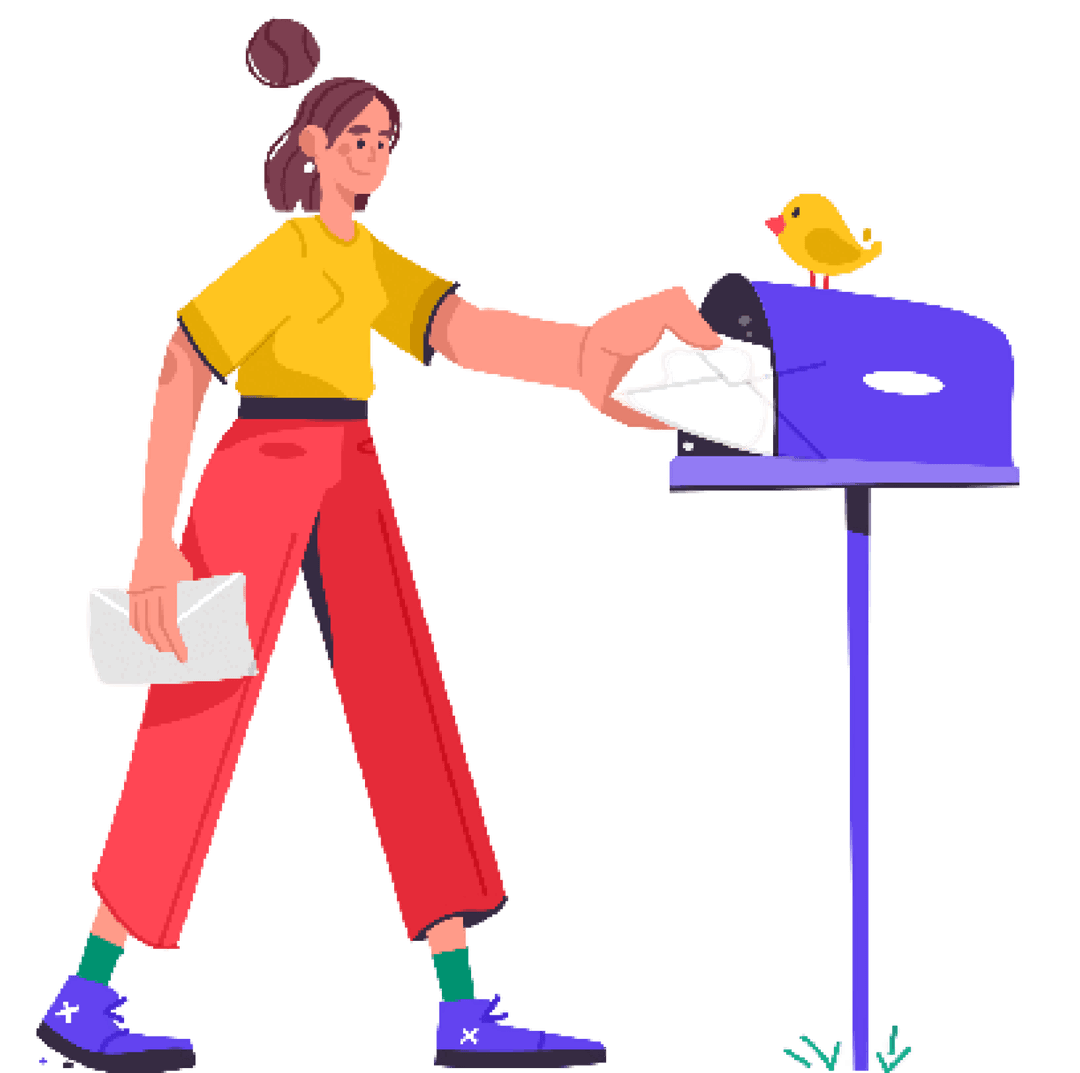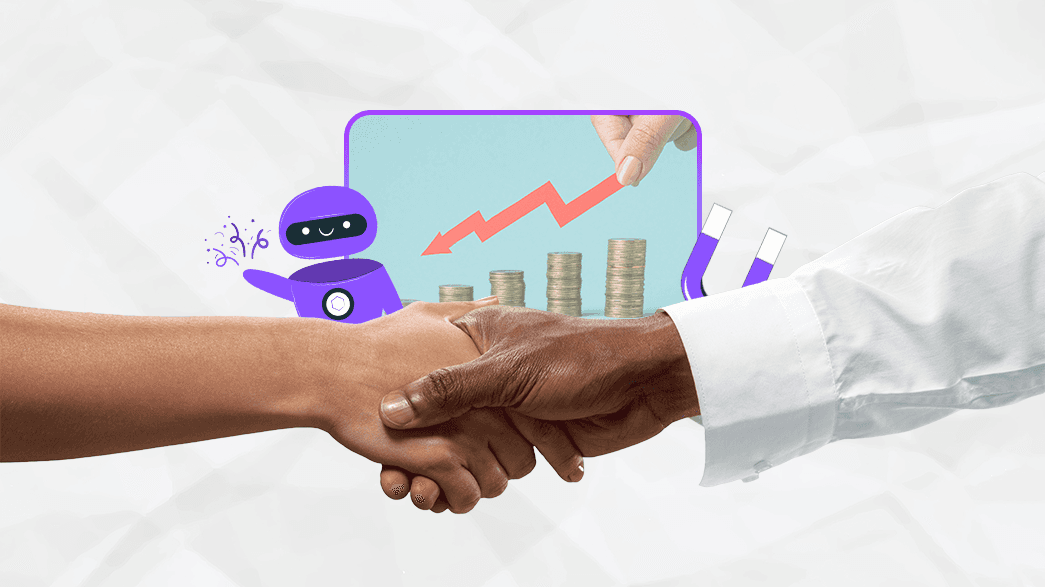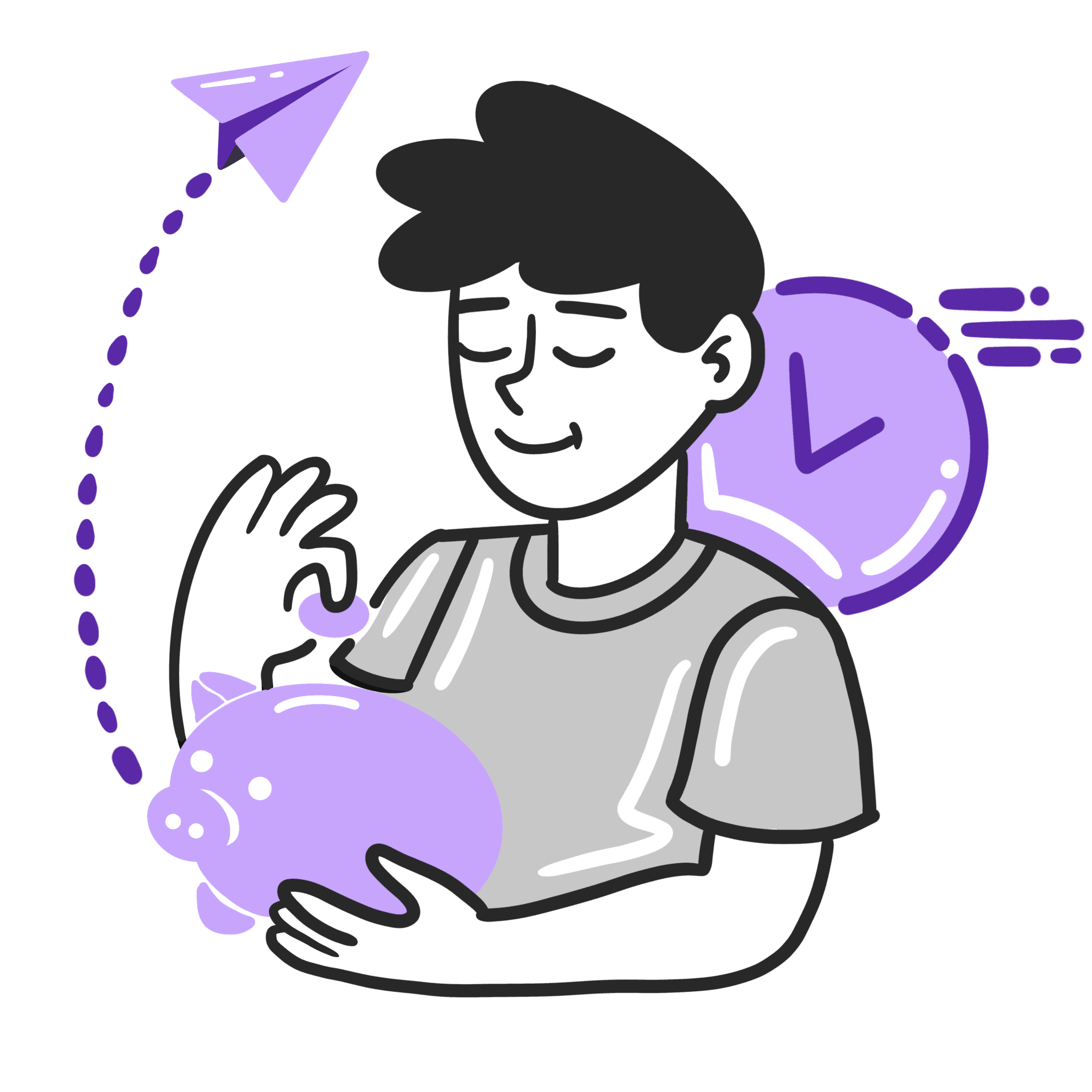
Customer Engagement
Published:
Customer Engagement
Qasim Farooq
Share

In the realm of modern business, keeping your customers engaged stands as the cornerstone of success.
What this requires is not just attracting customers but building meaningful relationships that drive customer loyalty and business revenue.
However, with the sheer volume of data available and the complexities of customer behavior, manually managing these relationships is becoming increasingly challenging.
Enter automated customer engagement—a game-changer in the world of marketing and customer engagement service.
This innovative approach leverages technology for managing customer data, analyzing it, predicting behavior, and automating interactions, revolutionizing how businesses connect with their audience.
In fact, 45 percent of organizations believe that artificial intelligence solutions would reshape their customer experience and customer engagement in the coming years.
By analyzing customer behavior patterns, businesses can tailor their communications and offerings to match individual preferences, driving higher customer engagement and conversions.
Furthermore, automating customer engagement enables businesses to stay agile and responsive in today's fast-paced digital landscape. With real-time analytics and insights, companies can quickly adapt their strategies based on changing customer needs and market trends.
In this blog, we'll go into the intricacies of automating customer engagement, exploring the benefits, strategies, and real-world use cases that demonstrate its impact.
From customer service chatbots to personalized marketing campaigns, we'll examine the potential of automation to drive higher conversion rates and foster lasting customer relationships.
Let’s get started!
What is automated customer engagement?
Automated customer engagement refers to the use of technology and tools to streamline and enhance interactions with customers throughout their journey with a brand.
It leverages automation to deliver personalized customer experiences, respond to customer inquiries promptly, and guide customers seamlessly through various touchpoints in the entire customer journey.
Imagine a customer's journey as a series of steps they take when interacting with a business, from first discovering a product or service to making a purchase and beyond.
Automated customer engagement is about making each of these steps smoother, more personalized, and more enjoyable for the customer.
From sending personalized welcome emails to following up with customers after a purchase, automating these interactions ensures that customers receive consistent and relevant communication at every stage.
This customer engagement automation is especially relevant in today's fast-paced business landscape, for businesses to stay competitive and meet customer expectations.
By automating repetitive tasks and workflows, businesses can free up resources to focus on delivering exceptional experiences that resonate with customers.
This not only saves time for both customers and businesses but also improves customer satisfaction by addressing their needs promptly.
Overall, automating customer engagement is about creating seamless and meaningful experiences for customers with the underlying aim of building stronger relationships, driving customer loyalty, and ultimately, increasing conversions.
Implementing Customer Engagement Automation
Implementing customer engagement automation requires a strategic approach that aligns with your business goals and customer needs.
Define Clear Objectives
Before diving into automation tools and strategies, it's essential to define clear objectives for your customer engagement efforts.
Identify specific goals such as increasing conversions, improving customer satisfaction scores, reducing response times, or enhancing cross-selling opportunities. These objectives will guide your automation strategy and help measure its success.
Map Customer Journey
Understanding customer journey is critical for effective automation.
Map out the various touchpoints and interactions customers have with your brand, from initial awareness to post-purchase support. Identify pain points, opportunities for customer engagement, and moments where automation can add value without sacrificing personalization.
This mapping process will inform the design of your automated workflows.
Select the Right Customer Engagement Tools For Automation
Choosing the right automation customer engagement tool is crucial for successful implementation.
Consider factors such as scalability, integration capabilities with your existing systems, ease of use, and the level of customization required.
Another key consideration is the level of automated personalization you want to incorporate.
In this context, hyper personalization features offered by a customer engagement platform like GoCustomer, could give you the competitive edge and enhance your customer engagement efforts.
Implement Test and Iterate
Once you've selected your automation tools and designed workflows based on customer journeys, it's time to implement, test, and iterate.
Start with a pilot or small-scale implementation to iron out any kinks and gather feedback from both customers and internal teams.
Monitor key performance indicators (KPIs) such as response rates, conversion rates, customer satisfaction scores, and retention rates. Use this data to iterate and optimize your automation workflows for continuous improvement.
What are the benefits of customer engagement automation?
Improved Operational Efficiency
Customer engagement automation streamlines repetitive tasks and processes, reducing manual effort and operational costs.
Automated workflows for customer inquiries, appointment scheduling, and follow-up communications enable teams to focus on high-value activities that require human intervention - thus improving overall efficiency.
Enhanced Customer Satisfaction
By delivering timely and relevant communications, customer engagement automation improves the overall customer experience.
Automated responses to inquiries, personalized recommendations, and proactive outreach based on customer behavior foster a sense of attentiveness and care, leading to higher satisfaction levels.
Customers appreciate the convenience of instant support and personalized interactions, which can significantly impact their perception of the brand.
Increased Sales and Conversions
Automation enables businesses to deliver targeted messages and promotions to segmented customer lists, driving customer engagement and conversions.
Personalized email marketing campaigns, automated follow-up sequences, and AI-powered product recommendations based on customer preferences and purchase history can lead to higher conversion rates and revenue growth.
Automation also facilitates cross-selling and upselling opportunities by identifying relevant offers for individual customers.
Data-Driven Insights
Customer engagement automation generates valuable data and insights that can inform strategic decision-making.
By analyzing customer interactions, preferences, and engagement metrics, businesses gain a deeper understanding of their audience's needs and behaviors.
This data-driven approach allows for more effective targeting, personalized messaging, and continuous optimization of customer engagement strategies.
Scalability and Consistency
Customer engagement automation enables businesses to scale their customer engagement efforts efficiently.
Whether handling a few inquiries or managing a large volume of interactions, automated systems ensure consistency in messaging, response times, and service quality.
This scalability is particularly beneficial during peak periods or when expanding into new markets, as businesses can maintain a high level of customer support and engagement without compromising on quality or resources.
Top Strategies for Leveraging Automated Customer Engagement Tools
Customer Service Chatbots
Customer service chatbots are AI-powered tools that can handle a wide range of customer inquiries and support tasks.
They provide instant responses to common questions, assist with troubleshooting, and guide customers through various processes.
For example, HubSpot's chatbot can provide instant responses to common questions, assist with troubleshooting, and guide customers through various processes. By implementing chatbots, businesses can improve response times, reduce wait times for
By implementing chatbots, businesses can improve response times, reduce wait times for customers, and ensure 24/7 availability for support.
Content Marketing Campaigns
Content marketing is a powerful way to engage with customers and provide value through informative and engaging content.
Automation tools like Semrush AI and ChatGPT4o can be used to streamline content creation, distribution, and optimization. For instance, Semrush AI can help generate SEO-friendly content ideas, while ChatGPT4o can assist in creating conversational and engaging content pieces.
With these tools, businesses can automate content scheduling, optimize content for search engines and user intent, and analyze performance metrics to refine their content strategy.
This approach ensures that content is delivered to the right audience at the right time, increasing engagement and driving conversions.
Streamlining Appointments with Customer-Facing Calendars
Appointment scheduling and management can be automated using customer-facing calendars.
These calendars allow customers to book appointments online based on availability, receive automated reminders and confirmations, and reschedule or cancel appointments as needed.
TimeTap, for example, allows customers to book appointments online based on availability, receive automated reminders and confirmations, and reschedule or cancel appointments as needed.
TimeTap's automation features streamline the appointment process, reducing no-shows and improving overall customer experience.
By streamlining the appointment process, businesses can reduce no-shows, improve customer satisfaction, and optimize resource utilization. Automated appointment reminders also help customers stay organized and ensure they don't miss important engagements.
Maximizing Customer Engagement with Automated Email Marketing
Email marketing remains a highly effective channel for customer engagement, and automation can enhance its impact.
An automated customer engagement software like GoCustomer is a rising star, in this regard. GoCustomer’s extreme personalization tools, including its LinkedIn Agent and Website Agent, have revolutionized automated customer engagement. These features gather deep insights from LinkedIn profiles and website content, allowing for hyper-personalized messages.
Businesses can use automated email marketing to send targeted promotions, product recommendations, and relevant content to segmented customer lists.
Automated workflows can nurture leads, re-engage inactive customers, and drive conversions through strategic email communication.
Amplifying Presence with Social Media Automation
Social media automation tools enable businesses to manage and automate their social media presence across multiple channels.
Hootsuite, for example, allows scheduling posts in advance, monitoring social media engagement, and responding to customer inquiries and comments automatically.
By using Hootsuite for social media automation, businesses can maintain a consistent posting schedule, engage with their audience in real-time, and track performance metrics to amplify their presence on social media platforms.
These tools allow scheduling posts in advance, monitoring social media engagement, and responding to customer inquiries and comments automatically.
By automating social media tasks, businesses can maintain a consistent posting schedule, engage with their audience in real-time, and track performance metrics.
This approach enhances brand visibility, fosters community engagement, and strengthens relationships with customers on social media platforms.
Three Real world use cases of customer engagement automation
Sephora: Personalized Beauty Recommendations
Sephora, a leading beauty retailer, utilizes customer engagement automation to deliver personalized beauty recommendations.
Through their mobile app and website, Sephora collects data on customer preferences, purchase history, and skincare concerns.
They use this data to power their "Beauty Insider" program, where customers receive personalized product recommendations, exclusive offers, and rewards based on their beauty profile.
Sephora's use of automation has led to increased customer loyalty and higher conversion rates by delivering relevant content and promotions to individual customers.
Amazon: Tailored Product Recommendations
Amazon, the e-commerce giant, is known for its sophisticated use of customer engagement automation.
One of their key strategies is personalized product recommendations based on customer behavior and purchase history.
By analyzing browsing patterns, search queries, and past purchases, Amazon's recommendation engine suggests products that are highly relevant to each customer.
This automation not only enhances the shopping experience but also drives additional sales as customers discover products they may not have found otherwise.
Netflix: Personalized Content Recommendations
Netflix, the popular streaming platform, leverages customer engagement automation to deliver personalized content recommendations.
Through machine learning algorithms, Netflix analyzes viewing history, genre preferences, and user ratings to curate a personalized list of TV shows and movies for each subscriber.
This automation is a cornerstone of Netflix's user experience, keeping viewers engaged and satisfied by offering content tailored to their interests. As a result, Netflix has seen significant increases in user retention and customer engagement rates.
These case studies highlight the diverse ways in which businesses can use customer engagement automation to create personalized experiences, drive customer loyalty, and increase conversions.
Conclusion
To sum, implementing customer engagement automation is essential for modern businesses looking to stay competitive and maximize their marketing campaigns' effectiveness.
By leveraging automation tools and strategies, companies can unlock the power of analyzing customer data, streamline processes, and deliver personalized experiences that drive conversions and foster long-term customer relationships.
Furthermore, automating customer engagement allows businesses to gather real-time customer feedback and insights.
By implementing feedback loops and automated surveys, companies can gather valuable input from customers, identify areas for improvement, and make data-driven decisions to enhance the overall customer experience.
To conclude, automating customer engagement is a game-changer for businesses looking to optimize their marketing campaigns, leverage customer data effectively, gather actionable feedback, and deliver seamless customer experiences.
In today's competitive landscape, businesses that prioritize customer engagement automation and invest in the right technology solutions are better positioned to succeed, build lasting customer relationships, and drive sustainable growth.

Reach more customers with your cold emails
Table of Contents
In a nutshell

Subscribe to our Newsletter!
Digital advice costs money but we send it to
your inbox for free.
Related Blogs


Time is Money, and We're About to Save You Both!
Book a quick demo of our email marketing tools and watch as we transform your leads into loyal customers.

Get in touch
Subscribe to our weekly Newsletter and receive updates via email.




![A loop illustration w-auto h-[70px]](/_next/image?url=%2F_next%2Fstatic%2Fmedia%2Fvector1.7738e6de.png&w=256&q=75)
